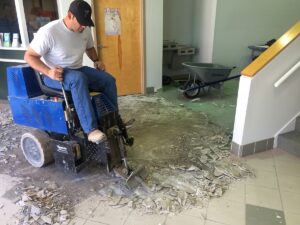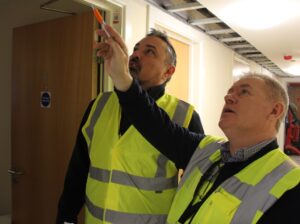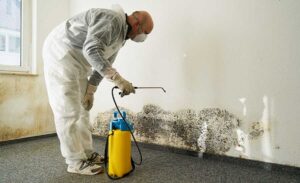The construction of resorts is a complex and intricate process that requires meticulous planning and execution. One crucial aspect that plays a pivotal role in ensuring the success of resort construction projects is the implementation of Critical Path Method (CPM) scheduling. CPM scheduling has become an indispensable tool for project managers, architects, and construction teams, providing a systematic approach to streamline tasks and optimize project timelines. In this blog post, we will delve into the reasons why resorts would greatly benefit from the adoption of CPM scheduling.
Comprehensive Project Planning
Resort construction projects involve a multitude of tasks, ranging from site preparation to interior design. CPM scheduling allows for the creation of a comprehensive project plan that outlines each task, its duration, and dependencies. This level of detail ensures that all aspects of the project are considered, minimizing the risk of oversights and delays.
Resource Optimization
Resorts often require a diverse range of resources, including manpower, materials, and equipment. CPM scheduling enables project managers to optimize the allocation of these resources by identifying critical tasks that must be prioritized. This prevents bottlenecks and ensures that resources are utilized efficiently throughout the construction process.
Risk Management
Construction projects are inherently susceptible to unforeseen challenges and risks. CPM scheduling allows for the identification of critical paths and tasks, enabling project managers to assess potential risks and develop mitigation strategies. This proactive approach enhances the project’s resilience to unexpected events, reducing the likelihood of delays and cost overruns.
Timeline Compression
Resorts often operate in highly competitive markets, and timely project completion is crucial for opening to the public or meeting seasonal demands. CPM scheduling facilitates timeline compression by identifying tasks that can be fast-tracked without compromising quality. This agility in project management can be a significant competitive advantage for resort developers.
Improved Communication and Collaboration
Effective communication and collaboration among project stakeholders are essential for success. CPM scheduling provides a visual representation of the project timeline, allowing all team members to understand their roles and deadlines. This transparency fosters collaboration and ensures that everyone is on the same page, reducing the likelihood of misunderstandings and delays.
Client Satisfaction
Resorts are often developed with specific target opening dates or events in mind. Delays in construction can have a direct impact on the client’s satisfaction and the overall success of the project. CPM scheduling enhances predictability, allowing clients to have a clear understanding of when their resort will be ready for operation.
Cost Control
Construction projects can quickly become cost-prohibitive without proper management. CPM scheduling assists in cost control by identifying critical paths and potential cost-saving measures. This level of financial oversight is crucial for staying within budget constraints and ensuring the economic viability of the resort project.
Conclusion
In conclusion, the adoption of Critical Path Method (CPM) scheduling is instrumental in ensuring the success of resort construction projects. From comprehensive project planning to improved communication and cost control, CPM scheduling for construction offers a systematic approach that aligns with the complexity and intricacies of resort development. As the demand for world-class resorts continues to grow, integrating CPM scheduling into construction practices becomes not just a choice but a strategic necessity for developers aiming to deliver projects on time and within budget.











